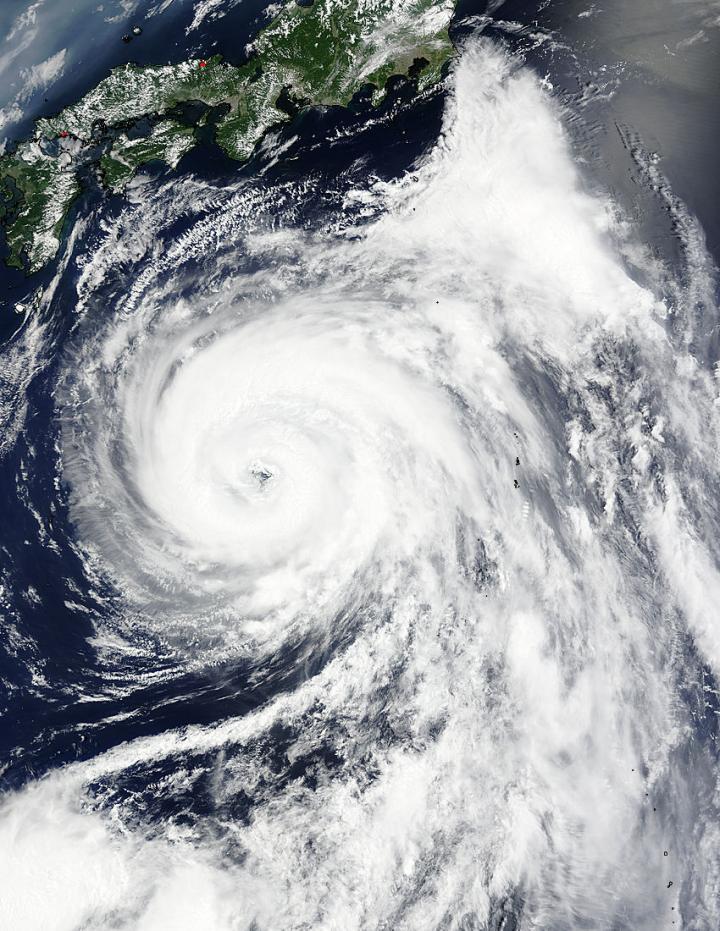NASA sees a ragged eye in Typhoon Nangka

NASA's Terra satellite captured this visible image of Typhoon Nangka nearing Japan on July 15 at 01:25 UTC (July 14 at 9:25 p.m. EDT). Credits: NASA Goddard MODIS Rapid Response Team
The Moderate Resolution Imaging Spectroradiometer or MODIS instrument aboard NASA's Terra satellite captured a visible image of Typhoon Nangka nearing Japan on July 15 at 01:25 UTC (July 14 at 9:25 p.m. EDT).
The image showed a ragged 15-nautical-mile-wide eye surrounded by thick bands of powerful thunderstorms.
At 1500 UTC (11 a.m. EDT), Nangka's maximum sustained winds were near 80 knots (92.0 mph/148.2 kph).
It was centered near 29.3 North and 135.4 East about 375 nautical miles (431.5 miles/694 km) south-southeast of Iwakuni, Japan. Nangka has tracked north-northwestward at 13 knots (15 mph/24 kph).
For warnings and watches from the Japan Meteorological Agency, visit: http://www.
The Joint Typhoon Warning Center forecast calls for Nangka to weaken and track north-northwestward to northwestward toward Japan.
Media Contact
All latest news from the category: Earth Sciences
Earth Sciences (also referred to as Geosciences), which deals with basic issues surrounding our planet, plays a vital role in the area of energy and raw materials supply.
Earth Sciences comprises subjects such as geology, geography, geological informatics, paleontology, mineralogy, petrography, crystallography, geophysics, geodesy, glaciology, cartography, photogrammetry, meteorology and seismology, early-warning systems, earthquake research and polar research.
Newest articles

A ‘language’ for ML models to predict nanopore properties
A large number of 2D materials like graphene can have nanopores – small holes formed by missing atoms through which foreign substances can pass. The properties of these nanopores dictate many…

Clinically validated, wearable ultrasound patch
… for continuous blood pressure monitoring. A team of researchers at the University of California San Diego has developed a new and improved wearable ultrasound patch for continuous and noninvasive…

A new puzzle piece for string theory research
Dr. Ksenia Fedosova from the Cluster of Excellence Mathematics Münster, along with an international research team, has proven a conjecture in string theory that physicists had proposed regarding certain equations….



